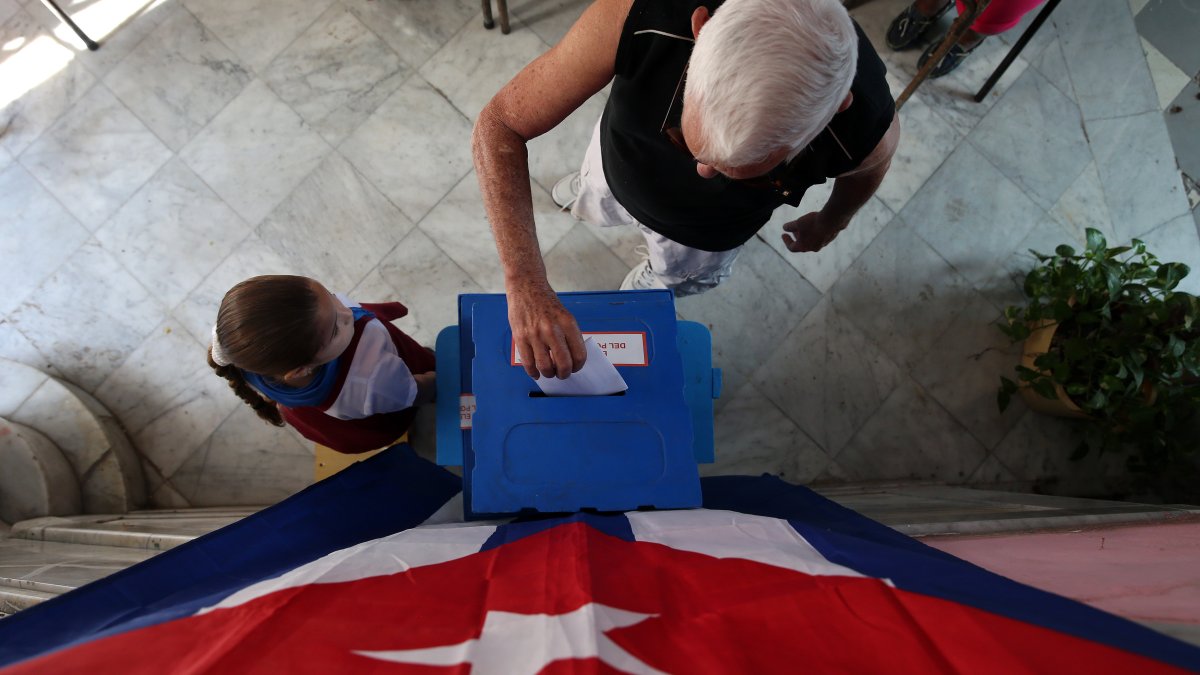Cuba celebrates legislative elections this Sunday, a relevant and controversial political event that the government of Havana defends as “authentic” and that dissidents reject as controlled and without representative value.
According to analysts, in these elections it is essential to understand the process of candidate selection, the way in which the vote is exercised, the meaning of the vote in the legal architecture of the country and, above all, the importance of participation, as a sign of the social legitimacy of the system.
WHAT IS VOTING?
In these elections, the 470 members of the National Assembly of People’s Power (ANPP), Cuba’s highest legislative body, are elected for a period of five years.
These elections, in which more than 8 million Cubans are expected to participate, represent a key stage in the institutional renewal of the country that began with the local elections last November.
The process will culminate when the National Assembly, in one of its first decisions, appoints the country’s new president, a post expected to be held for a second term by Miguel Díaz-Canel, leader of the Communist Party of Cuba (PCC). , the only legal holiday on the island.
WHAT ROLE DOES THE NATIONAL ASSEMBLY PLAY?
The National Assembly does not have continuous periods of sessions because deputies are convened periodically, normally twice a year, to approve executive bills, and its members do not receive a salary for this function.
Analysts and critics question its relevance, because it is overwhelmingly made up of members of the CPC and its youth – 96.5% in the current hemicycle – and because it approves in most cases unanimously the legislative initiatives it deals with.
However, their participation is necessary to deal with the serious economic crisis that the country is experiencing, with a great shortage of basic products such as food, fuel and medicine, galloping inflation, partial dollarization of the economy and frequent breakdowns.
Among the causes are the ravages of the pandemic, the tightening of American sanctions and the errors in the country’s economic and monetary policies.
WHO ARE THE CANDIDATES?
Among the candidates are members of the current government, starting with Díaz-Canel and many of his ministers, but also leaders of the revolution, such as former President Raúl Castro, 91.
There are also sports personalities, such as wrestler Mijaín López and judoka Idalys Ortiz; musicians like Raúl Alfonso; up to five official media directors; and the director of the largest conglomerate of public companies, Ania Guillermina Lastres.
The chevron Elián González, who in 2000 was at the center of the controversy between the politicians of Miami and Havana, was proposed as a candidate for the Assembly by the municipality of Cárdenas, in the province of Matanzas. Aged 29, he is deputy director of AT Comercial Varadero, a food import company run by the Ministry of the Armed Forces.
The government, the party and the official media ensure that this is a representative list of the country. There are no opponents among the candidates.
Authorities claim that all Cubans can choose and be elected. Formally, neither the CCP nor its youth are on the list. It is also not necessary to be an activist to participate in the election.
The candidates were proposed by the so-called mass organizations – state collectives in the orbit of the party – and approved by the Municipal Assemblies of People’s Power, composed mainly of communist militants.
WHAT TO CHOOSE?
There are 470 candidates for 470 seats. On the ballot, voters can put the “x” in the box of all the candidates -according to the so-called official-, only next to certain names or leave it blank. Dissident sectors advocate abstention.
Only those who will have more than 50% of the valid votes cast will be deputies. There are various legal provisions for filling positions that may become vacant.
The formula raises doubts among experts, opponents and lawyers, who cite a lack of competition and a controlled selection system. There are those who prefer to describe it as a referendum or plebiscite elections.
The government and state media claim that the CCP represents the country as a whole, that its system is a “true” democracy free from the influence of money, and that it is committed to a “unitary vote” that does not is not a “slogan” but a “revolutionary strategy”. .
There will be no international observers during these elections.
IS PARTICIPATION RELEVANT?
The Cuban government and state institutions insistently call for participation. Dissident and opposition groups inside and outside the island are calling for abstention to express their rejection of the mode of election in particular and the socialist model in general.
After abstention figures below 10% between 1976 and 2013, the rate rose to 14% in the 2018 legislative elections, the last comparable elections held in Cuba.
The last two times that Cubans went to the polls were in the referendum on the Family Code last September – where abstention approached 26% – and in the municipal elections in November, where rose to 31%.
During the consultation of the Family Code, President Miguel Díaz-Canel recognized a certain “critical vote”.
According to experts, a high abstention rate would show problems of legitimacy because, unlike other political systems, Cuba’s is based on the collective, participation and unity.
In the absence of public inquiries, one group to watch are young people, among whom disenchantment and political disaffection permeate after years of severe economic crisis. Some 13,000 young people from the age of 16 are called upon for the first time to exercise their right to vote.

